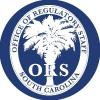Data & Mapping

Rural Cellular Coverage
The cellular coverage in rural areas is drastically different than the national coverage maps that cellular carriers have been advertising for years. The Federal Communications Commission announced a process to address this issue in October 2020 when it announced the creation of a 5G Fund for Rural America. This will be a $9 billion fund that comes from the Universal Service Fund and that will provide subsidies for wireless carriers to build and equip new rural cell towers.
The Benton Institute ACP Performance Tool
The Affordable Connectivity Program (ACP) is at an inflection point. Launched in early 2022, ACP provides 17 million households up to $30/month in subsidies to offset the cost of broadband. But the program faces two critical challenges. First, less than a third of eligible households currently participate in the program—mainly because the people who could benefit most from the subsidy are unaware that it exists. The Federal Communications Commission (FCC), local governments, and digital equity groups are stepping up efforts to improve ACP awareness and participation.

FCC Seeks Comment on Proposed 2023 Mandatory Data Collection for Incarcerated People's Communications Services
The Federal Communications Commission seeks comment on the contours and specific requirements of the proposed 2023 Mandatory Data Collection for incarcerated people’s communications services (IPCS).
Worcester, Massachusetts, looks into feasibility of municipal broadband despite high costs
While a municipal broadband system in Worcester (MA) could cost the city upwards of $250 million, officials are still considering the feasibility of such a project to address gaps in digital access among residents. Chairwoman and City Councilor Etal Haxhiaj requested the city administration conduct a feasibility study to “serve as a blueprint for a broadband master plan that outlines policies, designs, business and financial model options,” as well as apply for the state’s Municipal Digital Equity Planning Program to help learn what digital equity gaps exist in Worcester. Currently, Charter
Measuring network quality to better understand the end-user experience
Speed tests have barely changed in nearly two decades, even though the way we use the Internet has changed a lot. With so many more people on the Internet, the gaps between speed tests and the user’s experience of network quality are growing. The problem is so important that the Internet’s standards organization is paying attention, too. From a high level, there are three grand network test challenges:
Yes, there really is enough money to reach most of the Unserved and Underserved
Recently, a wireless company published a study about the cost to reach all the Unserved and Underserved. They estimated we need $307 billion to reach everyone. Generally, they make a case that the Broadband Equity, Access, and Deployment (BEAD) program will run out of money, so the federal government should settle for wireless technology.

NTIA Seeks Comment on BEAD Challenge Process
The National Telecommunications and Information Administration is proposing to issue 1) a Broadband Equity, Access, and Deployment (BEAD) Program Challenge Process Policy Notice to provide Eligible Entities with additional guidance on how to design and conduct their BEAD challenge process and 2) A BEAD Model Challenge Process to provide Eligible Entities.
Pew providing data that policymakers need to close the digital divide
Many Americans lack access to high-speed broadband which has allowed communities to get what they need without having to leave their homes. And so, just as the oceans commission developed the facts necessary to create solutions, Pew convened experts and conducted research to gather the data that policymakers need to make a difference and to expand access to this critical broadband infrastructure. Pew has been working at both the state and federal levels on broadband issues. Far from just a rural issue, broadband access is a concern all around us, in unserved city blocks and neighborhoods, w
Are Individual Broadband Map Challenges on a Different Timeline from Bulk Challenges?
The Federal Communications Commission and the National Telecommunications and Information Administration (NTIA) have recommended filing dates for bulk challenges to the National Broadband Map, which is updated twice yearly. But stakeholders hadn’t seen similar guidance from either agency about individual challenges.


